Acidic Foods for Babies: Does the pH of a Food Matter?
- Why the alkaline diet may be helpful in some adult situations...but why you don't need to worry about categorizing foods based on their pH for babies
- What types of foods NOT to feed your baby...these are mostly for choking risk reasons but there are some additional do not feed foods in there too
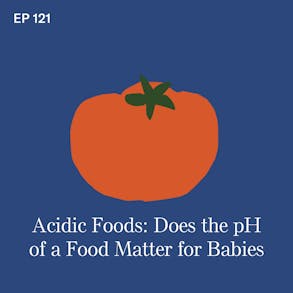
LISTEN TO THIS EPISODE
Episode Description
What’s up with the pH of baby foods? Can babies eat acidic foods? Should I avoid acidic foods for babies? Does the pH of the foods we feed our babies even matter? In this episode I’m diving into the data about acidic foods and feeding them to babies.
If you’ve ever wondered, “Is it safe for babies to eat tomatoes?” or “Is the alkaline diet safe for babies?” check out this episode for all the info you need to know on the pH of foods that we offer to babies.
Links from this Episode
- Baby-Led Weaning with Katie Ferraro program with the 100 First Foods™ Daily Meal Plan, join here: https://babyledweaning.co/program
- Baby-Led Weaning for Beginners free online workshop with 100 First Foods™ list to all attendees, register here: https://babyledweaning.co/baby-led-weaning-for-beginners
Resources & Research

Latest Episodes
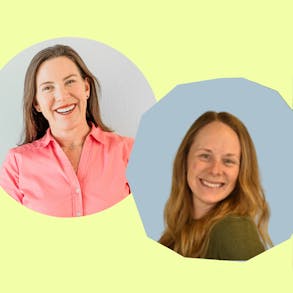
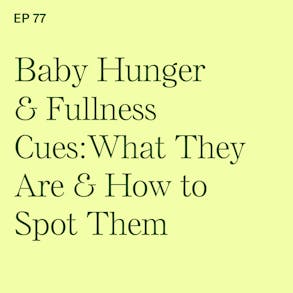
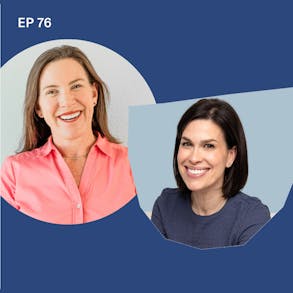
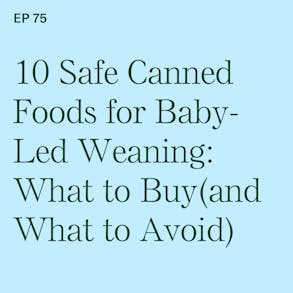
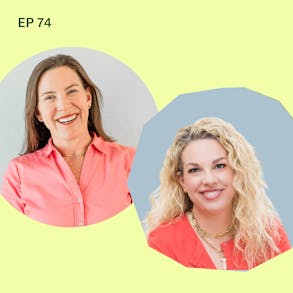
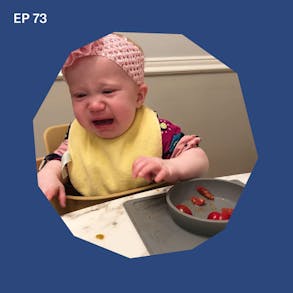
Katie Ferraro (0s):
You do not need to worry about manipulating the pH level of the foods that you feed your babies because avoiding acidic foods means not offering baby like lots of different foods that contain a variety of different nutrients That they need to grow. Hey, there I'm Katie Ferraro, registered dietitian, college nutrition, professor and mom of seven specializing in baby led weaning. Here on the baby led weaning made easy podcast, I help you strip out all of the noise and nonsense about feeding, leaving you with the confidence and knowledge you need to give your baby a safe start to solid foods using baby led weaning. Well, hey guys, welcome back.
Katie Ferraro (41s):
Today we are talking about acidic foods and does the pH of the foods that you feed your baby matter. And this is the question I get fairly often, not all the time, but enough to like necessitate its own podcast episode. So we talked a little bit about acidic versus basic foods and pH, and does it even really matter? So when I do these mini baby led weaning training episodes, I like to start with a, BLW tip of the day. And today's tip is there is not one food or one category of foods that is the best or the one that you should feed your baby. That's significantly better than all other ones. Sometimes you'll hear people say things like, oh, babies shouldn't eat grains or babies can't digest acidic foods.
Katie Ferraro (1m 24s):
And when you hear like dramatic statements like that, I hope that little bell in your head will go off like, Hmm, that doesn't seem right. So I want you guys to hang tight because I'm going to be sharing some specific ideas of what types of foods babies can safely eat in this episode. And then I'll also be sharing ideas about the types of foods you want to steer clear of. But again, when you hear like babies should not have carbohydrates or fat is the best nutrient for babies. Again, take all that with a grain of salt and know that babies can eat almost all foods. There certainly are a few exceptions and we'll get into that today. So let's go ahead and get started looking at acidic foods and does the pH of the food that we feed our babies even matter. All right, well, let's start out with what is pH, I don't know about you, but like chemistry was a long time ago for me.
Katie Ferraro (2m 9s):
And I think I blocked it out of my head as much as possible, but pH is essentially a measure of how acidic or how basic a substance is. So the range from the pH scale goes from zero to fourteen, with seven being right in the middle and being neutral. So a pH of less than seven indicates that something is acidic and a pH of greater than seven indicates that something is basic. Now decreasing numbers indicate increasing acidity and an increasing numbers on the pH scale indicate increasing alkalinity. So what are the foods are acidic and what are the foods that are basic? Let's start with low acid foods, things like fruits and vegetables, seeds, legumes, like lentils and tofu can be considered to be low acid foods. And you can look up the pH of all foods cause there, of course, some fruits that would be super acidic.
Katie Ferraro (2m 54s):
So there's not like a category of foods that we say, for example, these are all acidic or these are all basic foods. What are high acid foods, dairy products, for example, like cheese and milk on processed foods tend to be a little bit more on the acidic side. Fish tends to be on the acidic side, but does the pH of foods matter if basically everything comes out of your stomach at the same pH, right? If you think about the pH of your stomach, your normal stomach pH is acidic ranging from anywhere from 1.5 to 3.5. I remember used to hear the analogy. That's basically like the same environment is like it's acidic as a car battery. So I think of like, your stomach is a pretty caustic place, right? And there's actually a lot of reasons why our stomachs are very acidic.
Katie Ferraro (3m 36s):
Namely the acidic environment kills harmful pathogens that potentially enter the body in the food. Now, another reason for the acidic nature of our stomach is that that facilitates the environment for optimal digestion of foods and the breaking down, especially of the proteins in the food. So for example, the acid in your stomach helps to release vitamin B12, which can then go on to be absorbed elsewhere in the body. So there's this belief that foods containing acid forming substances, lower the pH level of your blood, which caused an accumulation of acid. Okay, what could happen then the body can compensate for this loss by leaching, alkaline minerals, specifically calcium from the bones and then screening them in the urine.
Katie Ferraro (4m 19s):
However, what we need to keep in mind is that our bodies, even babies bodies are a finely tuned machine with a built in buffering system that tightly regulate your blood pH in a process that's known as acid base homeostasis. Okay? And this basically occurs through a lot of different processes. For example, breathing right. Rates increase when your acid levels are high, your kidneys, if they're properly functioning, they release a substance called bicarbonate ions that specifically neutralize acid within the blood. So the mechanisms that our body already has, are so effective at balancing acids and bases that the acidity or the pH of a food that you eat or your baby eats has hardly any influence on the blood's pH.
Katie Ferraro (6m 34s):
Now, is there any science behind manipulating or even caring about the pH of a food that a baby is going to eat? Like, is this something we should be stressing about? My whole goal with baby led weaning is to make this as stress free as possible for you. So I think you already know the answer, but the answer is no. Well acid and alkaline based foods have a great impact on our bodies. From a nutrition standpoint, we're not concerned about the pH of those foods because of the impact or the effect they might have in our bodies. Okay? So for example, maybe you've heard of the alkaline diet, which recommends to avoid acidic foods. This consists largely of fruits and vegetables, even though some of those can be acidic and that's supports, you know, general nutrition recommendations, which are to eat more fruits and vegetables, eat more of a plant-based diet right Now, we also need to point out that fruits and vegetables, as wonderful as they are.
Katie Ferraro (7m 25s):
You guys know this, they don't have all of the nutrients and compounds and components of foods that will sustain life for babies, adolescents, kids, adults, anybody, fruits and vegetables are great, but they're just a piece of the puzzle. So we can't cut out everything that's not fruits and vegetables right. Now, there is some research that suggests that falling an alkaline diet might improve health in people with kidney disease. Okay? But however, it doesn't achieve this by changing the blood pH rather the alkaline diet for people with kidney disease encourages them to eat more fruits and vegetables and fewer processed meats and high fat dairy products, which across the board is a good recommendation for adults. Now we do want to do high fat or full fat dairy products for babies. When babies are eating dairy foods, they need the fat from those foods to help promote.
Katie Ferraro (8m 7s):
They're still developing brains, but you and me as adults, we don't need to be eating high fat dairy products. Now there's also a handful of studies that show that eating low acid foods could improve health. Although it's not from the standpoint of increasing or decreasing or regulating the blood's pH levels. Now are acidic foods harmful for babies. Okay? Acidic foods are not harmful for babies. And there are certainly foods that may cause the stomach to make more acid, like for example, citrus foods or tomatoes or tomato products. If you had like an underlying already existing ulcer in your stomach, yes. Sometimes certain foods can exacerbate that and make it worse, but they're not going to cause you to have an ulcer for babies that are born or have GERD, gastroesophageal reflux disease.
Katie Ferraro (8m 49s):
There are sometimes little dietary tweaks that we need to make. I'll talk about GERD separately in a different episode. We're here today to talk about like just across the board general neurotypical children. No, you do not need to worry about the pH of the foods that you're feeding your baby. If we look at a list of foods like, like for example, take my hundred first foods list. Okay. It is possible to consider over the long-term. If you were to only pick out the foods that were quote unquote, low acid or high acid or no acid, if those were the only foods that you fed your baby, of course you could end up having some sort of nutritional deficiencies, but across the board, you do not need to worry about manipulating the pH level of the foods that you feed your babies. Because avoiding acidic foods means not offering baby like lots of different foods that contain a variety of different nutrients that they need to grow like meats.
Katie Ferraro (9m 35s):
If your family, and say animal food or dairy products, which is how we introduce our babies to the potentially allergenic food, cow's milk protein, and how we get calcium and vitamin D into our babies to help promote healthy bone structure, important foods like lentils and tofu is in some seeds are good sources of protein. But if you do eat animal foods again, it's perfectly fine to incorporate some of those other foods. So take away message guys, you don't need to worry about the pH of the foods that you feed your babies. You might notice sometimes that feeding an acidic food might cause your baby to have a little bit more of a rash, for example, like some atopic dermatitis. So if they have a little bit of a contact rash on their mouth, when they try to tomatoes, it doesn't mean that there's anything wrong with your baby's just the amounts in the food reacting with the drool that your baby has because they're teething and causing a little bit of a reaction on their skin that goes away without any concern.
Katie Ferraro (10m 23s):
It's very unlikely that your baby would be allergic to tomatoes. That's a very, very low risk food. So take away message, try to offer a variety of foods, including fruits and vegetables meats. If your family eats meat, other sources of iron, if you don't rich sources of carbohydrate like whole grains, lentils, legumes, soy foods If you eat them, dairy foods, if you eat them, but you don't need to cherry pick certain foods or avoid certain foods because you're worried about the pH. Now I mentioned that I would be talking a little bit about what foods babies should not eat. And while I'm certainly a firm believer that babies can eat almost any food where we can modify most foods to make them safe for babies. There is a list of foods that I do recommend steering clear of.
Katie Ferraro (11m 4s):
So actually have a free download it's called 15 foods, never to feed your baby. A lot of these are because of the potential choking hazard, but inside of that list, I'm not just listing the foods. I'm actually providing additional information for you on how you can make that food or alter it to actually make it safe for babies. So when people say things like babies can't apples, they definitely should not eat raw apples, but I've got tips for you on how you can make apples safe for baby led weaning. So if you want to download my free worksheet called 15 foods never to feed your baby, just go to the show notes page for this episode, that's at BLW podcast.com forward slash one to one. If you enter your email address, you'll get the list of 15 foods never to feed your baby.
Katie Ferraro (11m 44s):
And beyond that, you don't really need to stress about manipulating foods. And certainly you don't need to worry about the pH of the foods that you feed your baby.

The Program Baby-Led Weaning with Katie Ferraro
A step-by-step digital program for starting solid foods safely and navigating the original 100 FIRST FOODS™ meal plan with baby-led weaning.
 EXPERT-LED, PROVEN APPROACH TO EATING REAL FOOD
EXPERT-LED, PROVEN APPROACH TO EATING REAL FOOD CONCISE VIDEO TRAININGS TO MASTER BABY-LED WEANING
CONCISE VIDEO TRAININGS TO MASTER BABY-LED WEANING 100 FIRST FOODS DAILY MEAL PLAN WITH FOOD PREP VIDEOS
100 FIRST FOODS DAILY MEAL PLAN WITH FOOD PREP VIDEOS
Baby-Led Weaning for Beginners Free Workshop
Is your baby ready to start solid foods, but you’re not sure where to start? Get ready to give your baby a solid foundation to a lifetime of loving real food…even if you’re feeling overwhelmed or confused about this next stage of infant feeding.
Get baby-led weaning recipes and tips delivered to your email inbox.

